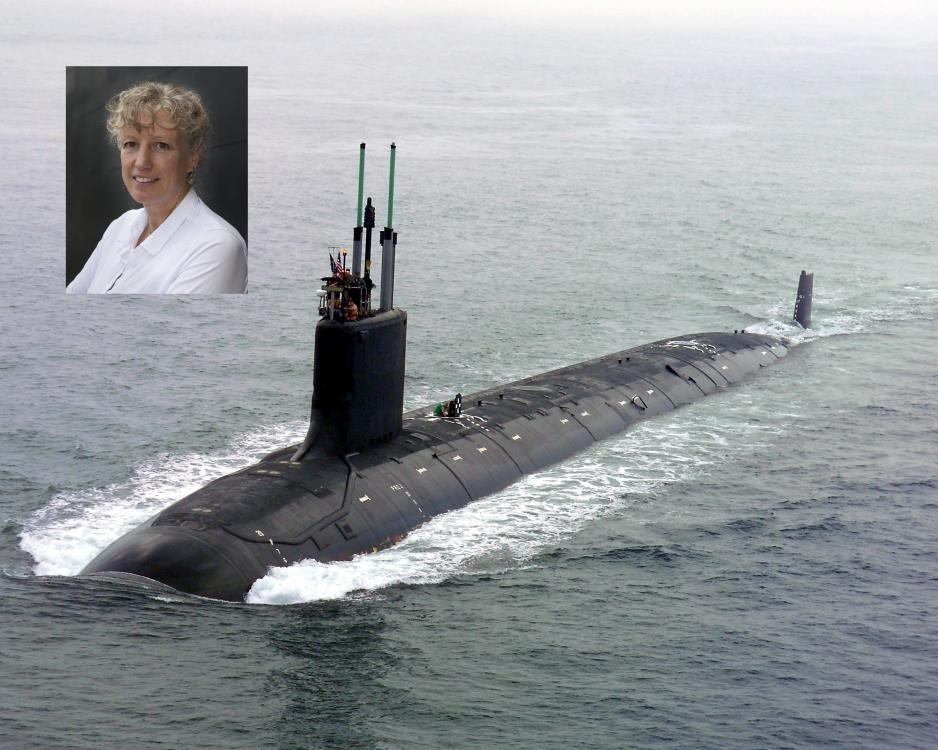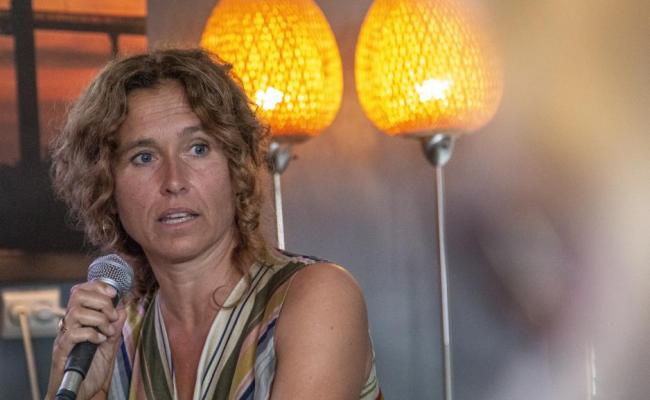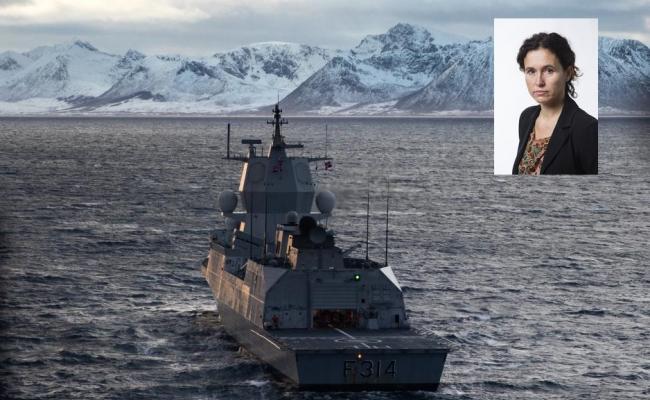“The Security Situation in Northern Norway is Significantly Different from That in the South”

A nuclear-powered submarine of the Virginia class. The Americans wants such submarines to receive permission to dock at Tønsnes near Tromsø, Norway. (Submarine photo: Wikimedia Commons. Photo of Professor Gunhild Hoogensen Gjørv: The University of Tromsø)
If the Norwegian Ministry of Defense has its way, nuclear-powered American submarines will be allowed to dock in Tønsnes, near Tromsø. Tromsø municipality, however, disagrees. “There is clearly a failure in civilian-military cooperation here”, says Professor Gunhild Hoogensen Gjørv at the University of Tromsø.
There is currently an ongoing conflict between Tromsø municipality and the Norwegian Ministry of Defense regarding whether or not nuclear-powered submarines are to be allowed to dock at Tønsnes, near Tromsø. The MoD argues that Tromsø municipality has a duty to allow such vessels access, whereas the municipality does not want to permit this as it argues the submarines constitute a danger to security and the environment.
Defense Minister Frank Bakke-Jensen recently spoke with Tromsø daily Nordlys and said:
“This will not damage the relationship between the USA and Norway, however, eyebrows will probably be raised in the USA regarding Tromsø believing that it can opt out of NATO. The fact that Tromsø believes others should receive these vessels, not Tromsø, should also draw attention from other municipalities.”
Gunhild Hoogensen Gjørv, Professor of Peace and Conflict studies at the University of Tromsø, argues that the conflict is a result of a failure in civilian-military cooperation.
Top-down
“In the eyes of the MoD, at least as stated by Frank Bakke-Jensen, the MoD is in charge and the rest of society has to follow suit. There are no intermediaries or other actors who can provide input in such processes. This is very common for the MoD’s security policy in that it reflects a national perspective. That also makes it difficult to carry out a total defense approach”, she says.
The ‘total defense’ is a joint term for civilian readiness and military defense in Norway. Gjørv says the total defense is completely dependent on a functioning cooperation between civil society and the armed forces. She says this cooperation at present is run in a very top-down manner, and that this approach is not always optimal.
The importance of ordinary citizens for the total defense should be discussed more.
The security situation in Northern Norway
Is locating defense facilities in cities that may become potential targets a good idea?
“It is important to take the discussion about location and what this does to the population. What does this do to the security perception of the population in Tromsø and the rest of the region? Civilian-military cooperation requires discussion between the various actors and that clearly has not happened in this case", and she adds:
“When Russia flexes its muscles, Norway will do the same. That is understandable. However, since Norway does not have big enough muscles on its own, we have to borrow muscles from the USA. But does this behavior work in an area that has made an effort with other approaches to the overall security situation? The security situation in Northern Norway is actually significantly different from that of the south”, she says.
Gjørv argues that it takes a constructive dialogue between national and local authorities to better manage conflicts between civil society and the armed forces.
“The civilian population is not a passive element in the defense of the country. The civilian population is often painted as an element only listening to what central authorities say. However, in the latest civil security whitepaper, the importance of civil society is acknowledged. That is good. Though we should talk about what this entails.”
Gjørv elaborates:
“Norway’s defense lies primarily in the civilian institutions we have developed. The importance of ordinary citizens for the total defense should be discussed more.”
The Armed Forces have worked since 2016 on facilitating a port in Tromsø for nuclear-powered vessels. Since the Olavsvern base just outside Tromsø was sold off in 2013, Northern Norway has not had any ports that can receive such vessels.
Also read
This article was originally published in Norwegian and has been translated by HNN's Elisabeth Bergquist.






